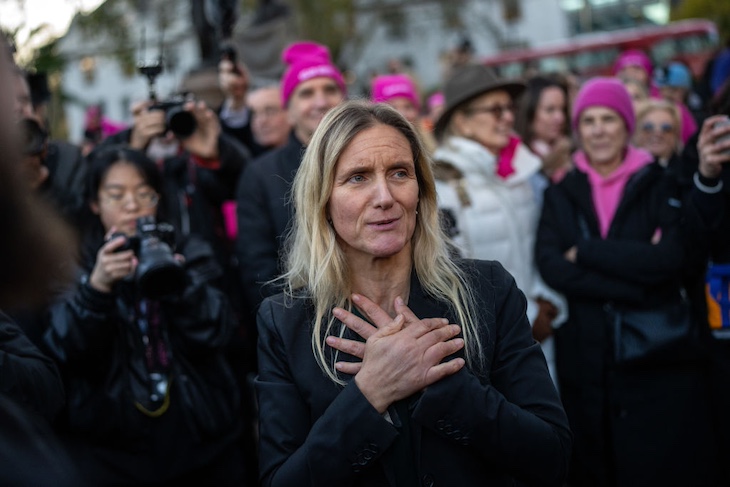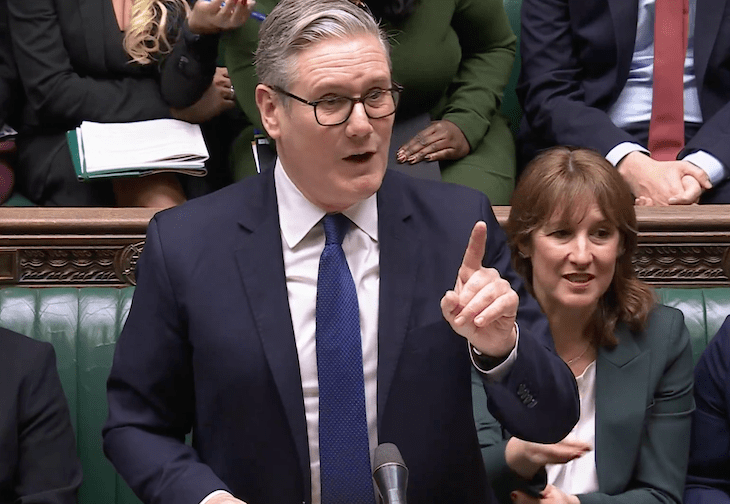Last November, when the House of Commons voted on her assisted suicide legislation, Kim Leadbeater told her colleagues that the Bill would face ‘further robust debate and scrutiny’, including ‘line-by-line scrutiny in Committee’. But judging by the disgraceful scenes at her Bill committee’s first formal sitting on Tuesday, Kim Leadbeater and her supporters have given up on any pretence of caring about scrutiny and fairness.
The procedural shenanigans began much earlier. First, Leadbeater, who gets to choose the committee’s membership as the sponsor of the Private Members’ Bill, subject to approval by the committee of selection, stacked it with strong supporters of assisted suicide (including five co-sponsors of her Bill and two government ministers who voted in favour of it), whilst turning down requests from experienced parliamentarians with relevant expertise to join the committee.
The handpicked committee belatedly issued a call for evidence in January, leaving little time for interested parties to send in submissions. Leadbeater then sent a list of witnesses for the committee to hear in person, only to submit a new list hours before its meeting this week.
Without any sense of irony, Leadbeater called her witness list ‘extremely balanced’. The numbers tell another story. Of the eight witnesses from foreign jurisdictions on Ms Leadbeater’s list, not a single one is opposed to assisted suicide, despite numerous foreign experts warning that Britain should not emulate their countries in legalising assisted suicide.
Of the nine lawyers on her list, not a single one is opposed to assisted suicide, despite numerous distinguished lawyers and former judges raising alarm bells about her Bill. Perhaps Leadbeater, who had to apologise for potentially misleading the House after she wrongly implied the judiciary was in favour of her Bill, did not want to be called out again by members of the legal profession. In total, according to MP Danny Kruger, of the names put before the committee, 38 were in favour of the Bill and the principle of assisted dying, while only 20 were opposed.
The committee will not hear from a single witness representing disability rights’ organisations, even though hundreds of them have raised concerns about the risk of coercion for disabled people. Not a single witness will speak about Canada’s disastrous ‘medical assistance in dying’ programme. Kit Malthouse, a committee member and one of the Bill’s co-sponsors, blithely dismissed Canada as irrelevant, even though British pro-assisted suicide organisations have been explicit about drawing their inspiration from the Canadian regime.
Most egregious of all, the pro-assisted suicide members of the committee, including both government ministers, voted down a proposal to hear oral evidence from the Royal College of Psychiatrists, which has expressed concerns about the Bill’s approach to mental capacity and coercion, because in Malthouse’s words, ‘it is not necessarily in the interests of time’ as the General Medical Council could represent the view of psychiatrists. Leadbeater later U-turned and allowed the College to testify: presumably she realised how contemptible it would be to exclude them.
The pro-assisted suicide majority on the committee voted to hold much of the session in private, which shielded their discussion from public scrutiny. Normally, a bill committee sits in private for a few minutes at the beginning of a session to discuss lines of questioning; on Tuesday the committee sat in private for more than an hour. We will never know what was said during this time, no record is kept.
It appears that Leadbeater has behaved since the Bill’s introduction as though her feelings override genuine concerns about the legislation. She behaved in the same petulant manner during the committee session, making aggressive points of order when she was challenged by other members. At one point, she angrily denied that the Bill had received significant input from pro-assisted suicide campaign groups, despite her close public association with the pro-assisted suicide group Dying in Dignity, which has made donations to her.
Jake Richards, another co-sponsor of the Bill,intervened only to describe two potential witnesses, a distinguished Chancery barrister and a Cambridge academic, as a ‘junior barrister’ and ‘junior lecturer’, while denying that he was ‘belittling’ them. Having called the witness list ‘objectively impressive and rigorous’, during the session it became apparent that he did not know who was on it, when he named two retired judges who were not on the list as witnesses.
The truth is that, to the Leadbeater Bill’s core supporters, the end justifies the means. After promising their colleagues that a vote at second reading meant further debate, Ms Leadbeater and her co-sponsors are trying to steamroll over their opponents. The many MPs who voted tor the Bill at second reading despite their reservations should watch the committee’s proceedings closely and ask themselves if they really want to associate their names permanently with this flawed legislation.







Comments